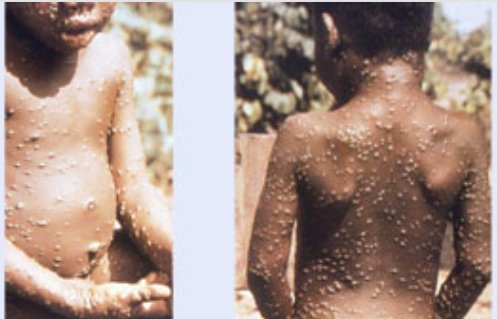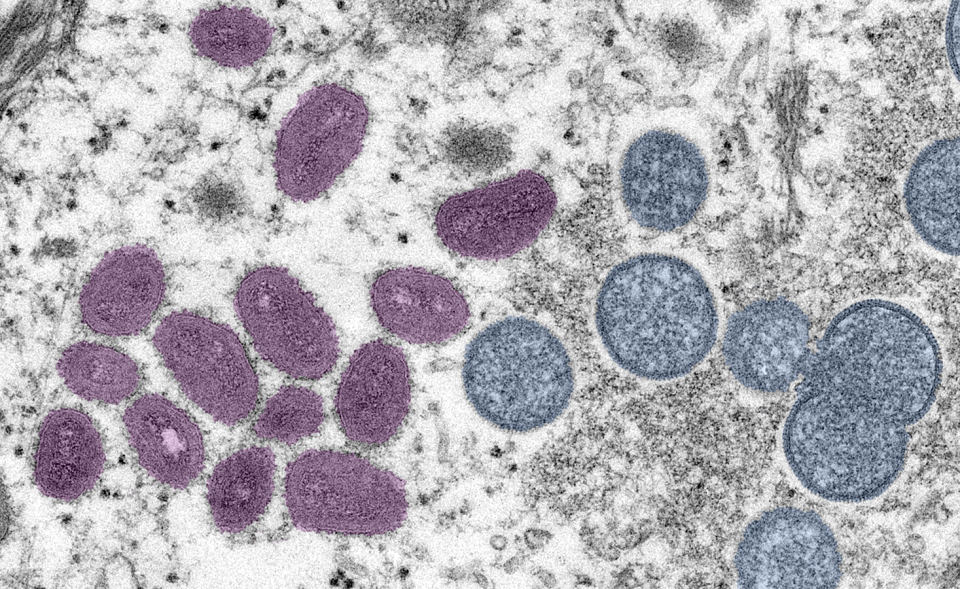Monkeypox has been spotted in Texas. Here's what you need to know about this disease
- Oops!Something went wrong.Please try again later.
Dallas County on Tuesday reported Texas’s first monkeypox case this year. The case was identified in a resident who had traveled internationally, according to the Texas Department of State Health Services. The agency also said the illness does not present a risk to the public.
The department is investigating the case with Dallas County Health and Human Services and the national Centers for Disease Control and Prevention. The CDC had raised its monkeypox alert level to Level 2 last week to warn travelers to take precautions.
Here's what you need to know about the disease:
What are the symptoms of monkeypox?
Symptoms of monkeypox include mild to severe flulike illness and a rash with pustules, which can look like blisters. Once pustules resolve, they will scab over and fall off, which is when the patient is no longer considered contagious.
Tracking new variants: New COVID-19 omicron variants show up in Travis County as cases rise

How do you get monkeypox?
Monkeypox can be transmitted through respiratory droplets, but only through close contact. This differs from COVID-19, which could spread through the room in the form of an aerosol in the air. But monkeypox does not behave that way, making it harder to transmit the disease.
The monkeypox virus usually spreads to humans from infected humans or animals, according to the World Health Organization. The virus can be transmitted from person to person through close contact, such as skin-to-skin touch or by touching infected bedding or clothing.
People who have monkeypox should avoid close contact with others until a week after the scabs resolve as a precaution, said Rodney E. Rohde, a Texas State University professor of clinical laboratory science who studies infectious diseases such as monkeypox, influenza and COVID-19.
Will monkeypox cause another pandemic?
Monkeypox is unlikely to cause another pandemic, Rohde said, but with COVID-19 on top of people's minds, people might fear another major outbreak.
“We're very hypersensitive after COVID," Rohde said. "I actually appreciate that people appreciate what's happening around them."
The comparison to smallpox might also scare some people, Rohde said, but the lack of deaths is one of the main differences between monkeypox and diseases such as smallpox or COVID-19. The United States has 35 known cases of monkeypox, including the Dallas County case, as of Wednesday, but no deaths have been recorded.
Most symptoms of monkeypox go away on their own within a few weeks. Infected newborns, small children and people with underlying immune deficiencies could be at risk for more serious symptoms and even death from monkeypox, according to the WHO.
Another distinguishing point between monkeypox and COVID-19 is the reproductive rate, which shows how many people an infected person is likely to infect. For the highly contagious original variant of coronavirus, the rate in the United States was estimated to be between 1.5 to 6.68, meaning an infected person is likely to infect up to six people. The omicron variant had an estimated reproductive rate of 5.5 to 24, or between five and 24 people infected by one person.
Rohde said the reproductive rate for monkeypox is less than one in America, meaning one infected person is likely to infect one person or no one at all.

Predicting pandemics: When will COVID-19 be over? How Austin doctors, scientists predict the future of pandemic
Is monkeypox a new thing?
Monkeypox isn't a new virus, and this isn’t the first time monkeypox has been in the United States. The first confirmed human case of monkeypox was in 1970 in Congo in central Africa. The last U.S. outbreak was in 2003, and it had 47 confirmed and probable cases that originated from a shipment of infected animals from Ghana in western Africa.
Is there any protection for monkeypox?
Monkeypox is a distant cousin to smallpox, so the smallpox vaccine can offer some protection against monkeypox. During the 2003 outbreak, the CDC deployed the smallpox vaccine, increased laboratory testing, tracked potentially infected animals and investigated possible human cases.
The Strategic National Stockpile has enough smallpox vaccine to potentially vaccinate every person in the United States. This is different from the early days of the COVID-19 pandemic. COVID-19 was a new virus, which meant a vaccine had to be developed. The first known vaccination for COVID-19 in the U.S. happened in December 2020, about a year after COVID-19 was discovered in China.
“We certainly have the capability at the public health level and health care level to handle" these monkeypox cases, Rohde said. “I don't in any way see this jumping to levels like influenza or COVID, for sure that that would be very unusual.”
Is there a test for monkeypox?
The United States has 74 laboratory Response Network labs that can do PCR tests for monkeypox, which Rohde said is adequate for the current rate of infection. Still, as infectious disease experts keep an eye on the virus, Rohde said it's important to make sure there are enough testing sites.
“This one certainly raises another reminder of what I talk about all the time, which is the critical need for public health surveillance and diagnostics and things like that ongoing,” Rohde said. “We can't keep in retrospect, wishing we had things up and going, so this is a good reminder, right as COVID has kind of been at least a little quieter, to wake people up that this needs to be an ongoing, funded, eternal need for the country.”
Vaccinations: Should your child get the COVID-19 booster? Central Texas experts weigh in
This article originally appeared on Austin American-Statesman: Monkeypox is in Texas, here's what you need to know about it

